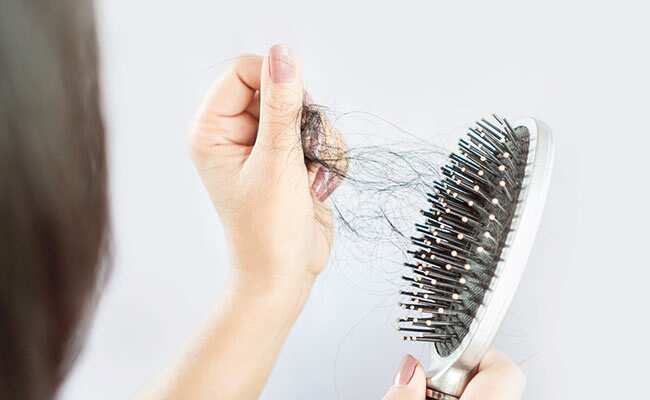Vitamin deficiencies might lead to hair fall, here's why and how to overcome it.

Heat from hair dryers, straighteners, and curlers can weaken hair strands, leading to breakage
Consuming sufficient vitamins is essential to good health. Health issues such as hair fall may be signs of nutrient deficiencies. In this article, we discuss which vitamin deficiencies can lead to hair and why. We also share tips to help you overcome it.
Here's how vitamin deficiencies can lead to hair fall:
1. Vitamin D
Deficiency of vitamin D can lead to hair thinning and hair loss. Vitamin D plays a crucial role in the hair growth cycle by stimulating hair follicles. Lack of sufficient vitamin D can lead to inactive follicles and hinder the growth process.
2. Vitamin B7 (Biotin)
Also known as biotin, vitamin B7 is essential for healthy hair growth. It helps in the production of keratin, a protein component of hair. Insufficient biotin levels can weaken the hair strands, resulting in hair fall.
3. Vitamin B12
This vitamin plays a vital role in the formation of red blood cells, which carry oxygen to the hair follicles. Inadequate levels of vitamin B12 can cause reduced oxygen supply to the scalp, leading to hair loss.
4. Vitamin C
Although not directly related to hair growth, vitamin C is required for the production of collagen, a protein that provides structural support to the hair. Insufficient vitamin C levels can weaken hair strands and lead to hair loss.
5. Vitamin E
This vitamin helps improve blood circulation, including to the scalp. Inadequate levels of vitamin E can reduce blood flow to hair follicles, impacting their function and resulting in hair fall.
Now that we know how certain vitamin deficiencies can lead to hair fall, let's understand how to prevent it.
Tips to prevent hair fall caused by vitamin deficiencies:
- Consume a variety of nutrient-rich foods that include fruits, vegetables, whole grains, lean proteins, and healthy fats to ensure adequate vitamin intake.
- Incorporate foods rich in vitamins A, B, C, D, and E into your diet. Examples include carrots, sweet potatoes, spinach, citrus fruits, fish, eggs, nuts, and seeds.
- Consult with a healthcare professional or a registered dietitian to determine if you need supplements to bridge the gaps in your diet. They can recommend the appropriate vitamins and guide dosage.
- Heat from hair dryers, straighteners, and curlers can weaken hair strands, leading to breakage. Minimise or avoid using such tools frequently to reduce hair fall.
- Avoid harsh brushing or combing, especially when hair is wet. Opt for wide-toothed combs or brushes with soft bristles to reduce hair breakage.
- Overexposure to the sun's harmful rays can weaken hair follicles, leading to increased hair fall. Wear a hat or use hair products with SPF when spending extended periods outdoors.
- Chronic stress can contribute to hair fall. Engage in stress-reducing activities like exercise, meditation, or hobbies to help maintain a healthy scalp and hair.
- Visit a healthcare professional to identify any underlying health conditions or vitamin deficiencies that may be contributing to hair fall. They can guide you on appropriate treatments or lifestyle changes to address the issue.
To maintain a healthy hair growth cycle, it is important to ensure a balanced and varied diet containing adequate amounts of these vitamins.
Disclaimer: This content including advice provides generic information only. It is in no way a substitute for a qualified medical opinion. Always consult a specialist or your own doctor for more information. NDTV does not claim responsibility for this information.
DoctorNDTV is the one stop site for all your health needs providing the most credible health information, health news and tips with expert advice on healthy living, diet plans, informative videos etc. You can get the most relevant and accurate info you need about health problems like diabetes, cancer, pregnancy, HIV and AIDS, weight loss and many other lifestyle diseases. We have a panel of over 350 experts who help us develop content by giving their valuable inputs and bringing to us the latest in the world of healthcare.














